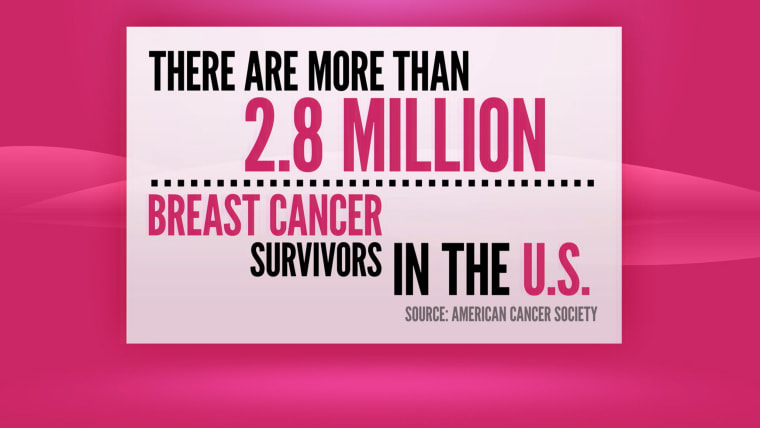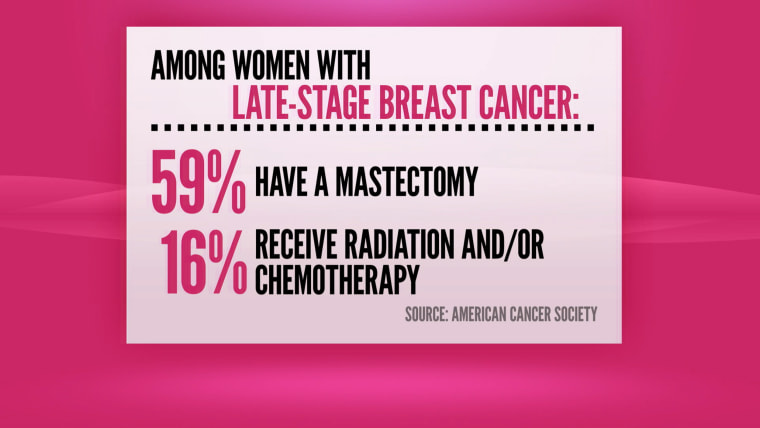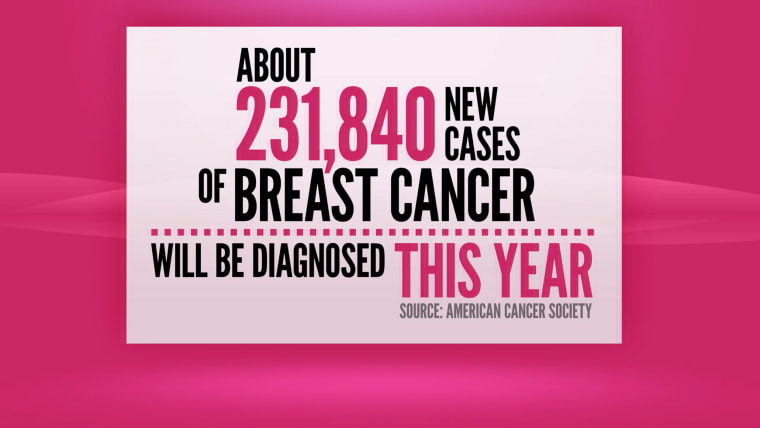To kick off Breast Cancer Awareness month, TODAY's Hoda Kotb and special correspondent Joan Lunden sat down on Thursday to spotlight prevention strategies as they shared some of their own experiences with the disease.
Along with Savannah Guthrie and oncologist Dr. Marisa Weiss, the two breast cancer survivors started the conversation by discussing something they had in common when each was diagnosed.
"Neither of us had any family history of breast cancer," Kotb noted as part of the #PinkPowerTODAY series. "One of the first questions they ask you when you go to the doctor is, 'Do you have family history?'"
While breast cancer is the most common cancer in women except for some skin cancers, with an estimated 231,000 new cases being diagnosed this year, most women do not have a family history of the disease.
"Only 10 percent of breast cancers are due to an inherited genetic alteration," said Weiss, the founder of breastcancer.org. "Which means that 90 percent are mostly related to how you lead your life in your every day.

"And the good news there is, you can take steps every day to lower your risk," she added.
Still, the perception that you can't get breast cancer without a family history persists. Lunden acknowledged she did not perform self breast exams because she didn't realize only a small percentage of women diagnosed with breast cancer have a family history of the disease.
"And I didn't have a family history, so I kind of thought I was immune, and honestly, I was a little embarrassed once I got diagnosed," said Lunden, who was diagnosed last year and is now cancer-free. "It's a really common myth, and it's scary because if you think that you're immune you're not checking," she added.
That led to a discussion about the importance of self breast exams, which help you know what's normal for your breasts, and the question of who should undergo genetic testing.
"There are certain women who are good candidates and really should seriously consider getting genetic testing to see if they have one of those genes that put them at high risk for breast cancer," Weiss said.
That group includes women with a strong family history of breast cancer, those with an Ashkenazi Jewish background, those with male relatives who had breast cancer, a family history of ovarian cancer and women diagnosed with triple negative breast cancer, Weiss said.

Don't forget to look at relatives on both your mother's and father's side when considering your family history. "Both are equally important," Weiss said.
Read more: Woman's battle with breast cancer inspires husband to embark on a wild ride
The panel also discussed mammograms, and noted the disagreement about the right age for women to start having the screening test.
"The bottom line is, get your yearly mammogram starting at age 40," Weiss said. "Mammograms can save your life. Breast cancer is the most common cancer to affect women and mammograms are our most powerful tool for early detection.
"It can save your life and it may help you find it early when you can avoid more aggressive treatments like chemotherapy," she added.
For women with a first-degree relative with breast cancer, like their mother or sister, Lunden noted the advice to begin your mammograms a decade earlier than the age at which your relative was diagnosed.
"If you're high risk, your doctor may recommend you start earlier," Weiss confirmed. In a taped segment that aired before the discussion, Kotb, who was diagnosed with breast cancer at 42, discussed the value of having someone to support you through the diagnosis and treatment with her oncologist, Dr. Freya Schnabel.
"I remember, just before I was wheeled into the operating room, my mom was standing right there and I was on the table and you looked at my mom and you said 'I'm going to take good care of your daughter,''' Kotb recalled.

How important is it to have loved ones close by? "I think that people who are really well supported and are embedded in great networks of support just get through the treatments better," Schnabel said.
TODAY.com contributor Lisa A. Flam is a news and lifestyles reporter in New York. Follow her on Twitter.